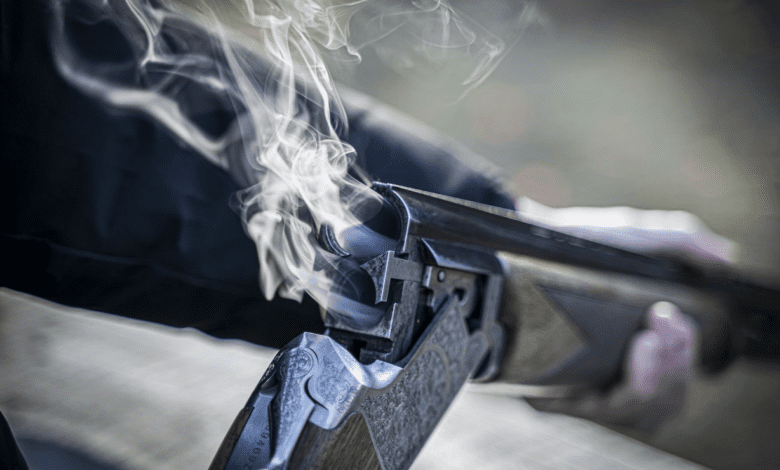4 Essential Tips for Choosing Hunting Equipment

Whether you’re a seasoned outdoorsman or a beginner venturing into the world of hunting, choosing the right equipment can make or break your experience. The right gear not only ensures your success but also guarantees your safety. This guide offers four essential tips to help you navigate the myriad of hunting equipment available on the market, ensuring you make informed choices that will enhance your hunting expeditions, regardless of your experience level.
1. Consider Your Hunting Environment
When selecting hunting equipment, it is crucial to consider the environment in which you will be hunting. Each setting necessitates specific gear tailored to its demands. For instance, navigating a dense forest may require a compact and agile weapon, whereas an open plain could benefit from the use of a long-range rifle. Weather conditions also play a pivotal role. In rainy climates, waterproof clothing and gear become indispensable, while hot and sunny environments necessitate breathable and light-colored attire. Conducting thorough research on the area and climate is imperative to ensure that your gear aligns perfectly with your surroundings. When uncertain, it is advisable to seek guidance from seasoned hunters or consult your local hunting club for expert advice.
You can also consider the type of game you will be hunting. Different prey may require specific equipment, such as specialized calls, lures, electric hunting bikes, and stands. Understanding the habits and tendencies of your target animal can significantly increase your chances of a successful hunt.
2. Select the Right Protection for Your Rifle
Having suitable protection for your rifle can greatly enhance its longevity and functionality. A good quality rifle skin not only protects your firearm from damage and the elements but also provides added camouflage, aiding in blending with your hunting environment. When choosing a skin, consider its durability, resistance to water and scratches, and its color or pattern. Matching your skin to your hunting environment will make you less noticeable to your prey, increasing your chances of a successful hunt. Whether you decide to go with AR-15 skins or a camouflage wrap, make sure it meets your specific hunting needs. Having a customized skin can also add a personal touch to your hunting gear. In case of damage, having a spare skin can be helpful as it ensures your rifle stays protected throughout your hunting expedition. Those seeking to add a touch of creativity can also opt for do-it-yourself skins, creating unique and one-of-a-kind designs.
3. Invest in Quality Optics
Achieving precision and accuracy in hunting necessitates the use of high-quality scopes or binoculars, enhancing your aim and vision significantly. When selecting optics, consider factors such as magnification level, lens quality, and durability. Additionally, take into account your hunting environment; dim lighting conditions may require a larger objective lens for improved visibility. It is important to note that quality optics may come with a higher price tag, but the long-term investment is well worth it. Not only do they enhance the hunting experience, but they also provide comfort, especially when scouting game from a distance.
A useful tip when purchasing optics is to try them out beforehand. Visit a local hunting store or ask a fellow hunter if you can borrow their equipment for a trial run. This will allow you to get firsthand experience with the optics and make an informed decision based on your personal preferences. For those on a budget, consider investing in quality secondhand optics rather than settling for low-cost, poor-quality options.
4. Don’t Forget the Basics
While it may be tempting to splurge on expensive equipment, it’s important not to overlook the basics. A well-crafted knife, a reliable compass, and a first aid kit are essentials for any hunting trip. Make sure to also pack adequate food and water, as well as extra layers of clothing in case of changing weather conditions. Having a reliable map or GPS device can also be beneficial, especially when hunting in unfamiliar territories.
In addition to these basics, it’s essential to know how to use them effectively. Practice using your equipment beforehand so that you’re comfortable and confident handling it during a hunt. A lot of hunting accidents and mishaps can be avoided by having a good understanding of the basics. Making sure you have the right knowledge and skills before heading out into the field can greatly contribute to a successful and safe hunting experience. To stay sharp and up to date, consider taking refresher courses or consulting experienced hunters for tips and advice.
Armed with these four crucial tips, you are now better equipped to meticulously select the perfect hunting gear. Not only will it ensure your safety, but it will also significantly increase your chances of a successful hunt. Remember, the art of choosing the right hunting equipment lies in striking a balance between understanding your hunting environment, investing in top-notch quality, not overlooking the basics, and customizing your gear to your preferences. As you gain experience, you’ll likely fine-tune your hunting kit to better align with your unique style and needs. While it may involve some trial and error, armed with these invaluable tips, you’ll be well on your way to becoming a skilled and prepared hunter.
